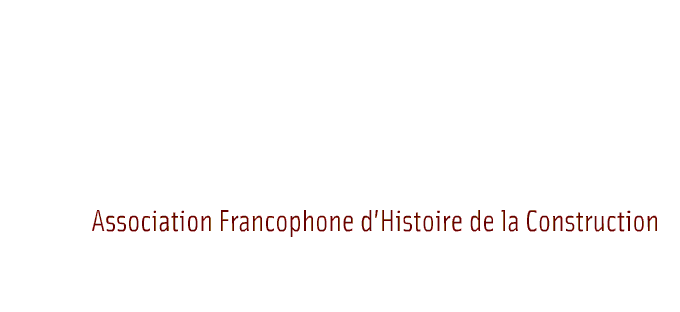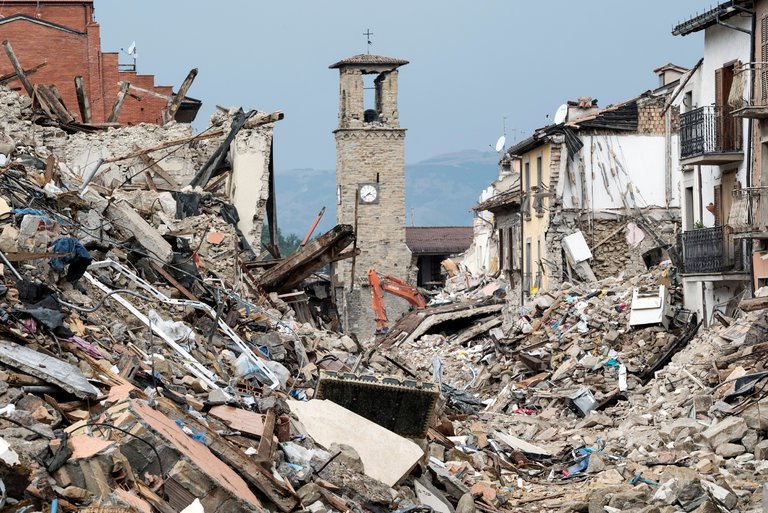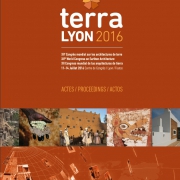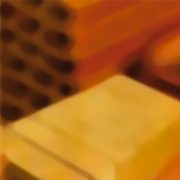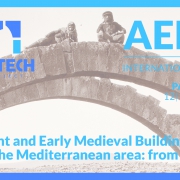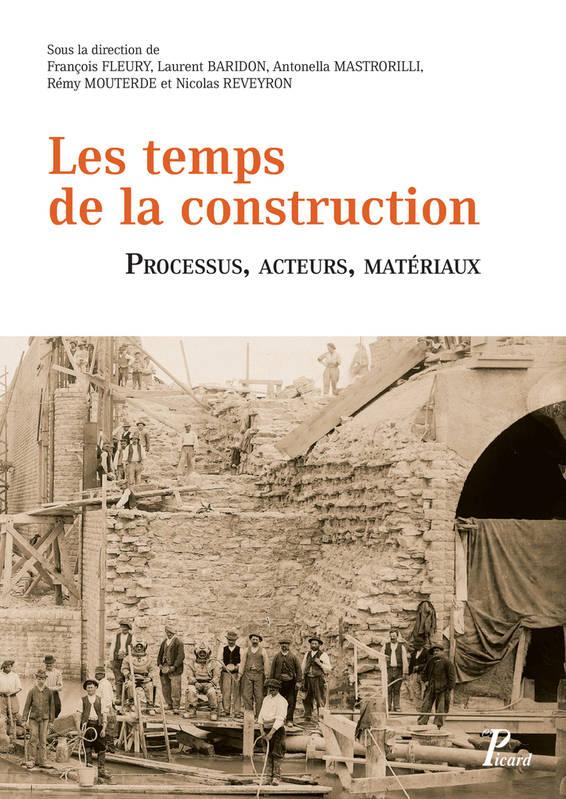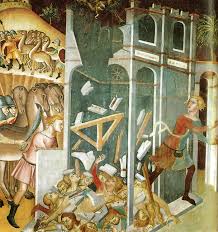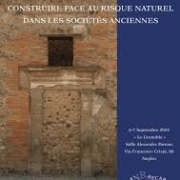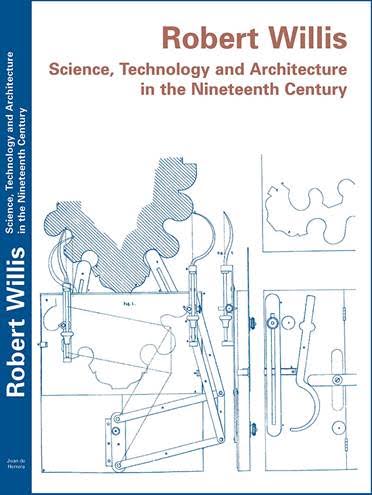ANR RECAP : Workshop
WORKSHOP de l’ANR RECAP,
20 octobre 2017, 9h30-18h,
Laboratoire de géologie de l’ENS, salle E314 (24, rue Lhomond 75005 Paris)
Dans le cadre du programme ANR RECAP, les laboratoires d’archéologie (AOROC) et de géologie de l’Ecole normale supérieure, l’Institut de radioprotection et de sûreté nucléaire et l’Association française du génie pararismique et organisent un workshop sur les techniques de maçonnerie face aux séismes, de l’Antiquité à nos jours : perspectives d’études pluridisciplinaires.
Explorer les caractéristiques du patrimoine bâti face aux tremblements de terre présente un enjeu crucial dans les zones à risque. Complexe et encore largement méconnu, le comportement des maçonneries, qui constituent une des techniques de construction les plus traditionnelles depuis l’Antiquité, mérite d’être considéré à part entière. Ce sera l’objectif de ce workshop international, conçu comme un bilan des méthodes d’analyse. Il réunira archéologues, sismologues, ingénieurs des structures et architectes. Ces différents spécialistes croiseront leurs approches afin de dessiner de nouvelles perspectives d’étude et de conservation des bâtiments en maçonnerie.
Inscription gratuite et obligatoire sur le site : http://www.geologie.ens.fr/workshop
Organisation : Didier Combescure (AFGP), Hélène Dessales (ENS, AOROC-UMR 8546), Maria Lancieri (IRSN), Hélène Lyon-Caen (ENS, Laboratoire de géologie-UMR 8538)
In the framework of the ANR RECAP, the laboratories of archaeology (AOROC) and geology of the Ecole normale supérieure (UMR 8538, 8546), the Institut de radioprotection et de sûreté nucléaire and the Association française du génie parasismique organize a workshop on Masonry techniques in the face of earthquakes, from Antiquity to the present: prospects for multidisciplinary studies
Exploring the characteristics of heritage buildings in the face of earthquakes presents a crucial issue in risk-prone areas. Complex and still largely ignored, the behavior of masonries, which constitute one of the most traditional building techniques since Antiquity, needs to be focused. The aim of this international workshop is to assess the various methods of analysis. It will bring together archaeologists, seismologists, structural engineers and architects. These various specialists will cross their approaches in order to define new directions for the study and conservation of masonry buildings.
Masonry techniques in the face of earthquakes, from Antiquity to the present:
prospects for multidisciplinary studies
October 20th, 2017: Laboratoire de géologie, Ecole normale supérieure
(salle E314 – 24, rue Lhomond 75005 PARIS)
Exploring the characteristics of heritage buildings in the face of earthquakes presents a crucial issue in riskprone areas. Complex and still largely ignored, the behavior of masonries, which constitute one of the most
traditional building techniques since Antiquity, needs to be focused. The aim of this international workshop is to assess the various methods of analysis. It will bring together archaeologists, seismologists, structural engineers and architects. These various specialists will cross their approaches in order to define new directions for the study and conservation of masonry buildings. In the framework of the ANR program RECAP, the workshop is organized at the Ecole normale supérieure, by the AOROC (UMR 8546), the Geology laboratory (UMR 8538), the AFPS and the IRSN.
Organization: Didier Combescure (AFPS), Hélène Dessales (ENS, UMR 8546), Maria Lancieri (IRSN), Hélène Lyon-Caen (ENS, UMR 8538)
PROGRAM
• [9h30] Hélène Dessales, Didier Combescure: introduction
Archaeological and textual interpretations
• [10h] Andrea Arrighetti (Università degli Studi di Siena): Archaeology of buildings and seismic risk. Methodological practice and case studies from Italy
• [10h30] Hélène Dessales (ENS), Agnès Tricoche (CNRS, Labex TransferS): The characterisation of post-seismic repairs in Pompeii : the database OPUR
• [11h] Hervé Jomard (IRSN): Overview of SisFrance : the French historical macroseismic database
11h30-12h30: discussion
In-situ characterization and modelling
• [14h] Maria Rosa Valluzzi (Univ. Padova): The contribution of structural engineering to the conservation of archeological sites in seimic area
• [14h30] Joao Guedes (Univ. Porto): Example of vulnerability of existing structures and intervention measures to improve masonry constructions’ seismic behaviour
15h-15h30: discussion
Structures: models of calculation, laboratory tests
• [15h30] Andrea Prota (Univ. Napoli Federico II): Improving construction capacity against earthquakes: lesson learned from Pompei
• [16h] Frédéric Ragueneau, Cédric Giry, Cécile Oliver-Leblond (ENS Cachan): Mechanical modelling issues regarding masonry heritage structures: from material to structure
• [16h30] Sergio Lagomarsino (Univ. Genova): Seismic assessment of existing masonry buildings: conservation, strengthening and safety issues
17h-18h: discussion and conclusion
